THE State Government will today offer a $250,000 reward for information that leads to the arrest of those who gunned down a former KGB colonel outside his palatial Gold Coast home.
Gennadi Bernovski was killed in the driveway of his Sir Bruce Small Boulevard mansion on July 25, 2000, in what police have described as a well-planned killing.
Police Minister Mark Ryan today announced the reward for information that leads to the arrest and conviction of those responsible for the death of the 41-year-old Russian immigrant.
Mr Ryan said he hoped the reward would reignite public interest in the case.
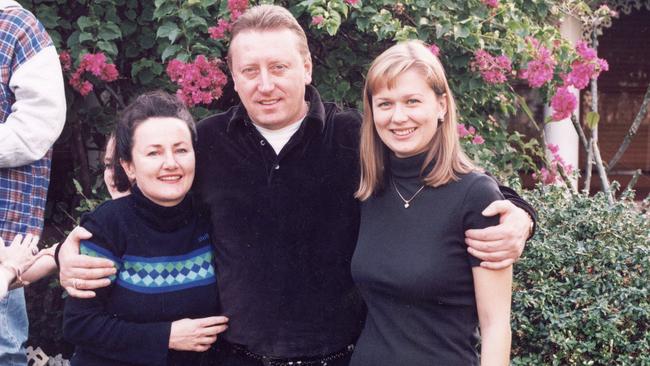
REWARD INCREASED FOR NSW COLD CASE MURDER
“We are appealing to the public to come forward and help police so that Mr Bernovski’s family can finally get the closure they deserve,” he said.
“They deserve to know what happened to him and to see those responsible brought to justice.
“We also owe it to the community to ensure anyone who commits such serious and heinous crimes face the full force of the law, regardless of the time that has passed.
“I urge anyone with any information, no matter how small, to contact police immediately.”
Gold Coast Detective Inspector Marc Hogan said there was a certain group of people who know what happened to Mr Bernovski.
He said the decision to release a reward was due to the amount of time gone by.
“We understand the importance of time of gone by,” Det Insp Hogan said.
“We thought it was a good opportunity to revive this case and solve it.”
Asked about Mr Bernovski’s KGB past, Det Insp Hogan said it was not necessarily linked to his death.
“There’s nothing really untoward we can see,” he said.
“It’s one of those things we haven’t been able to explain fully.”
Mr Bernovski’s death has been back on the police radar for eight months, Det Insp Hogan said.
Mr Ryan praised the work of police and acknowledged the possibility of a conviction.
“We know there are people out there who have information about this case,” Mr Ryan said.
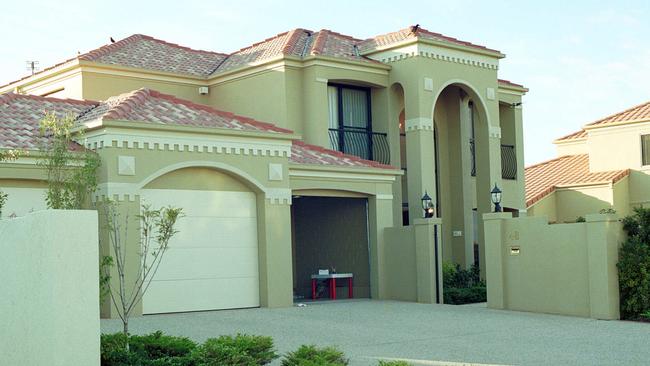
KEY SUSPECT DIES WITHOUT BEING CHARGED OVER 1984 MURDER
Det Insp Hogan said: “A positive for us in this matter is possibly the passage of time. People move on, circumstances around people’s lives change and that may be an opportunity for anyone who may be able to assist to come forward.
“Our Government and the Queensland Police Service do not give up on these matters, as the community would and should expect from us. And I would encourage anyone who may be able to assist to help bring closure for his family and those people who are close with the victim.”
He said there had be some challenges throughout the investigation, with police collecting a mountain of evidence and details into the murder.
“Police have had to deal with some cultural barriers, but that doesn’t mean it can’t be solved.
“None of the detail collected during initial investigations has been lost. And it may be the smallest piece of information which provides a capacity for people to solve this murder.
“We believe someone has the piece of information we need to finally solve this case and we are urging them to come forward and speak with police.
“Regardless of how insignificant you think the information may be, we encourage you to pick up the phone and speak with police.”
WHAT HAPPENED THAT NIGHT
It was a crime that shocked the Gold Coast, something out of a Hollywood film, an ex-KGB Colonel, Russian money and a whodunit murder mystery reminiscent of a John le Carré novel.
Gennadi Bernovski was gunned down in the driveway of his palatial Sir Bruce Small Boulevard home as he took out the rubbish — the sound of a .32 semiautomatic ripping through the crisp winter night, in the quiet neighbourhood.
His young wife, Svetlana, who had left her husband’s side only moments before, and their child sat inside the mansion on the canals of Benowa Waters.
It was July 25, 2000, about 9.30pm, when those eight shots broke the sleepy street. Mr Bernovski was hit three times, once in the knee and twice more into his abdomen.
He managed to crawl up the driveway and into the doorway of his home, screaming out to his wife that he had been shot. Police tried to revive the Russian immigrant, but he could not be saved and died at the scene.
Two men and possibly a woman, dressed in what was described in the media at the time as wetsuits, were seen running from the scene, thus launching the long-held theory that Mr Bernovski was gunned down by “frogmen” who made their escape through the canals of the Coast.
Detective Inspector Marc Hogan yesterday said there was no evidence that “frogmen” had been involved in the murder. However, he said the killing was well planned out.
“There’s nothing to support that (that frogmen were involved),” he said. “There is nothing that we are aware of that gives credence to that version and I’m not sure exactly how that scenario came about.
“It wasn’t described by the witness who saw people running from the scene. It was dark clothing, so I think something happened there (with that information).
“It clearly appears to be a well thought-out crime, which by nature means the person or persons responsible have also put thought into not being detected.
“This has always been one of those matters which has never lost our interest.”
Detectives described the murder at the time as a contract killing on Mr Bernovski. To understand that theory, police had to dive into the former KGB colonel’s past.
Six years before he met his brutal end, Gennadi Bernovski had immigrated to Australia following the fall of the Soviet Union, leaving behind a murky past. He is said to have been a colonel in an elite SAS-style military unit in the KGB.
Little is known about Mr Bernovski’s past before he arrived in Australia. Less is known about how he came about his money.
Upon arrival on the Gold Coast, he kept a low profile, moving in a small circle of close friends within the Russian community. He was known to frequent the casino, but is said to have been an unsuccessful gambler.
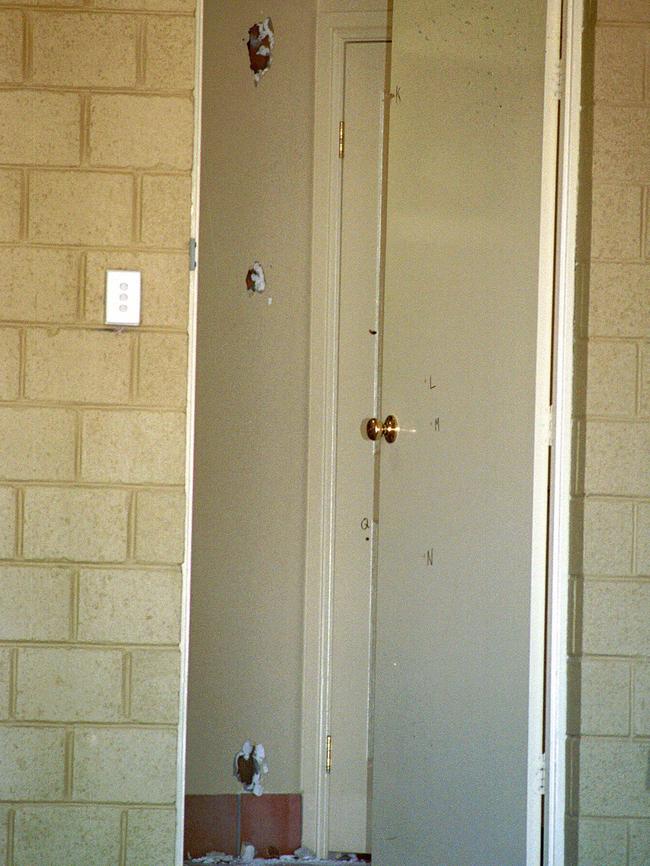
In the days, weeks and months following his death, detectives were searching for a motive, the large-scale investigation unravelled busted business deals among Russian immigrants.
They discovered a number of Russians migrated to Australia specifically to become involved in business schemes organised by Mr Bernovski.
It’s thought the Russian immigrant owed his countrymen upwards of $860,000, including about $400,000 to close business partner Oleg Kouzmine.
Both of the men held interests in Prima Foods, a small goods distribution company based in West Burleigh in the late 1990s and a second-hand car-broking service. Both ventures failed.
It is understood the relationship between the pair soured when Prima Foods went under and Mr Bernovski sold his share in the business.
In a police interview after Mr Bernovski’s death, Mr Kouzmine claimed Mr Bernovski boasted of being a Russian mafia boss.
GET FULL DIGITAL ACCESS FOR 50C A DAY
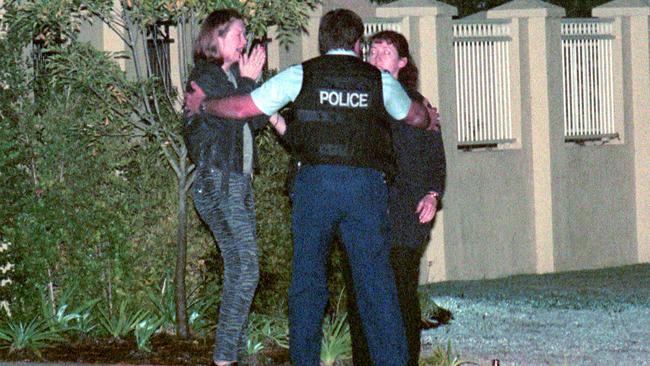
“I don’t know (if he had any enemies),” said Mr Kouzmine. “I know just one thing, that he didn’t make any secret out of it. He just said he was the head of the Russian mafia in Yakutsk and also in Kalingrad … he didn’t hide this.”
Asked if he knew who would kill his compatriot, he simply replied “no”.
In the days after his police interview Mr Kouzmine flew back to Russia. He promised to speak with police when he came back to Australia in a few weeks time.
Detectives uncovered what they believed to be the strongest motive — money. And that money led to Mr Kouzmine, who had arrived in Australia in 1998 with $1.3 million from “dubious” origins.
Police spent months interviewing people, laboriously checking phone records and intricate financial dealings.
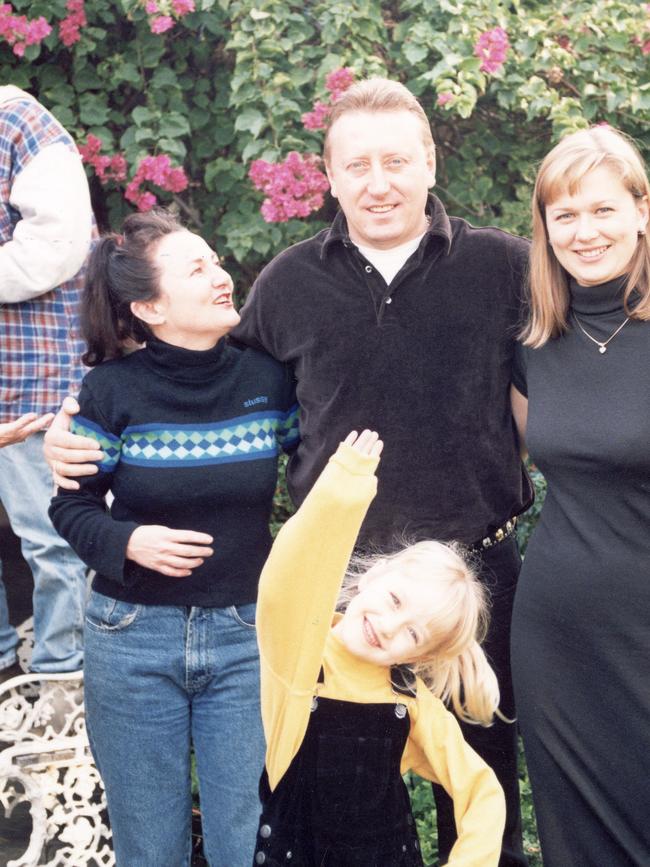
Detectives claimed when Mr Kouzmine lost all of his money, he made it known that he blamed Mr Bernovski.
After widow Svetlana Bernovski buried her husband at the Serbian Orthodox Church, the funeral party went back to Spargo’s restaurant at Southport for a wake.
Mr Kouzmine was not among those at the party.
But another business partner of both Mr Kouzmine and Mr Bernovski, Michael Shnirman, arrived home from the wake to find a chilling, typed note in his letterbox. It read: “1. Bernovski. 2. Shnirman. 3. Starikov.’’
On the note, Mr Bernovski’s name had a line through it.
Mr Shnirman went into the witness-protection program; Mr Starikov disappeared.
Mr Kouzmine became the prime suspect when his fingerprints were discovered on a gate at the Bernovski home in the days after he had flown out of the country.
He did not come back to Australia and was arrested a month later by Russian police on embezzlement charges.
He spent eight months in prison and was said to have spent a lot of money to stay alive within the corrupt prison system.
An arrest warrant was taken out against Oleg Kouzmine in April 2001.
Eight months after being locked up in Russia, Mr Kouzmine was released from the St Petersburg prison, without charge.
Detectives revealed Mr Kouzmine wrote to them from Russia in September 2001, passed on to Burleigh Heads CIB via the Australian Embassy in Moscow and Interpol.
The letter, written in broken English, is the ramblings of a clearly angry Mr Kouzmine, who cannot return to Australia to see his two children from his former marriage.
Mr Kouzmine blamed the police and the media for not being able to return.
“While I was imprisoned in Russia, the Australian policemen charged me with the murder of Gennadi Bernovski on the only ground that I had gone to Russia and had not returned. In my opinion that fact can’t be a cause for an accusation of such a serious crime and an official retrieval by Interpol,’’ he wrote.
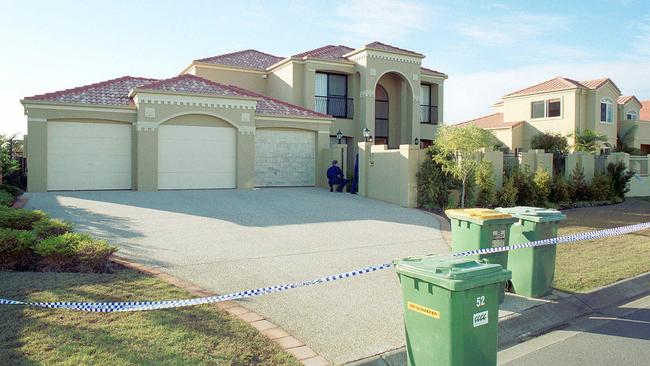
“I have the right to be unpleased with the actions of Australian policemen … depriving me of my opportunity to leave Russia.’’
But the accused gunman remains untouchable as Russia does not have an extradition treaty with Australia.
GET FULL DIGITAL ACCESS FOR 50C A DAY
If you have any information that could assist police in solving the murder of Gennadi Bernovski, contact Crime Stoppers on 18000 333 000 or Policelink on 131 444.
